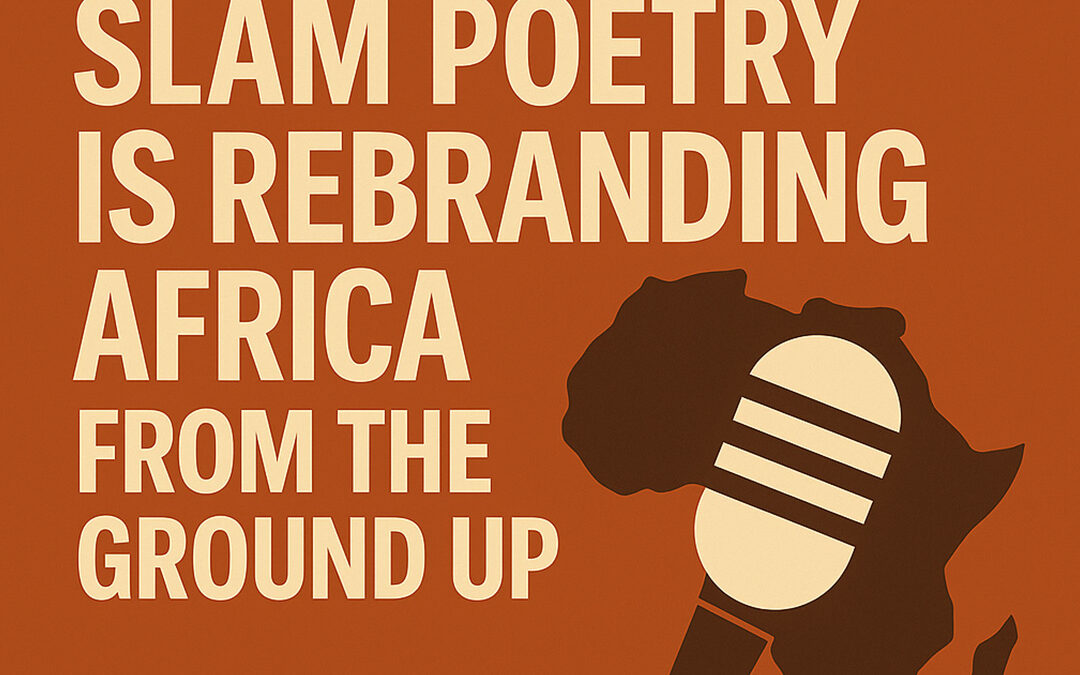Africa Has Always Been Branded Just Rarely by Africans.
For decades, the continent has been shaped by stories told from the outside. Documentaries, disaster headlines, and donor reports have too often flattened Africa into a single story. But a new narrative is emerging one crafted not in pressrooms or policy offices, but on stages, street corners, and slam arenas.
From Accra to Ciudad Juárez, a new branding agency is taking shape, the voice of the people.
Slam poetry is no longer a fringe art form. It is strategy. It is structure. It is soft power. And it may be the most authentic branding tool Africa has ever owned.
1. Branding Begins Where Policy Fails
When governments fall silent, poets speak. In the face of misrepresentation, young Africans are picking up microphones, not just hashtags. They’re building narratives that reflect who they truly are.
Brand Ghana isn’t only cocoa and kente. It’s in the verses of youth who perform identity, dignity, and truth. It’s in platforms like Ehalakasa, which center purpose over profit.
Because branding isn’t always funded. Sometimes, it’s performed.
2. The Poetic Is Political
Who gets to define Africa?
At SheShe Slam, women reclaim their agency with every word. At Ehalakasa, rhythm becomes rhetoric and verse becomes advocacy. These aren’t shows — they’re sessions in civic imagination.
Africa’s future brand is not a campaign. It’s a chorus. And slam is its language.
3. Cultural Platforms Are a Form of Soft Power
If you want influence, build a community.
When Ghana won the 2025 World Poetry Slam Championship in Mexico, it wasn’t just a performance. It was positioning. We didn’t just lift a trophy. We lifted Ghana’s cultural capital on a global stage.
Embassies noticed. Ministries responded. Because when a nation exports voice and vision, the world pays attention.
4. Afro-Minimalism as Slam Aesthetic
Our stage speaks before we do.
Each visual element, clean lines, earthy tones, bold fonts is intentional. Afro-Minimalism isn’t just design. It’s clarity. It’s cultural grounding. It allows the poem to lead with grace and gravity.
It rejects gimmicks. It centers truth.
Because Africa doesn’t need to be exaggerated. It needs to be understood.
5. Reclaiming the Narrative Is Not a Trend It’s a Task
We are not waiting for permission. We are building platforms that validate our own voices. One slam. One stage. One verse at a time.
If you want to understand Africa’s emerging identity, don’t just look at the markets. Look at the mics.
Because where there’s rhythm, there’s revolution. And where there’s poetry, there’s power.
Let’s Build Africa’s Next Narrative
I’m building cultural platforms, leading slam championships, and using communication to shape perception and policy. If you’re in branding, arts, or development, let’s connect.
Let’s write the new Africa together.

